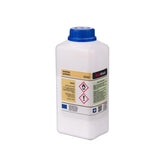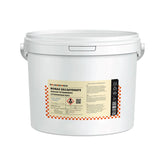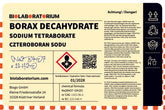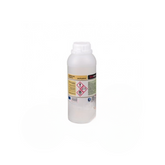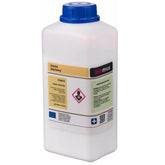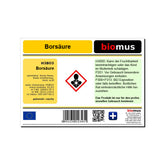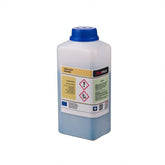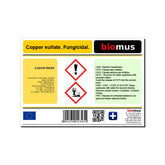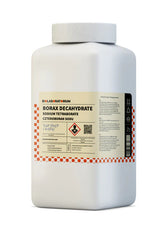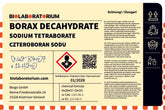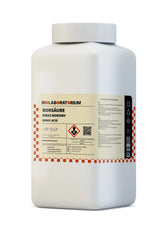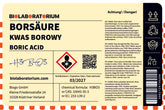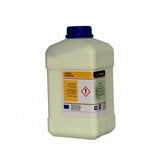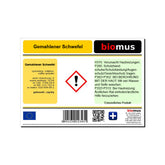Hydrochloric acid: Versatile industrial chemical with important applications
Hydrochloric acid, also known as hydrogen chloride, is one of the most important industrial chemicals worldwide. It enables the production of numerous products and facilitates industrial processes. In this blog post, we take a closer look at the properties, applications, and safe handling of hydrochloric acid.
What is hydrochloric acid?
Hydrochloric acid is an inorganic acid composed of hydrogen (H) and chlorine (Cl). The chemical formula is HCl. At room temperature, hydrochloric acid is a colorless liquid with a pungent odor. The higher the concentration, the more caustic and aggressive the acid.
Hydrochloric acid is formed when chlorine gas is dissolved in water. In nature, hydrochloric acid occurs, for example, in volcanic gases or stomach acid. In industry, however, hydrochloric acid is mostly produced synthetically.
Important properties of hydrochloric acid
Hydrochloric acid is a strong acid with a pH value of 0 to 1 at high concentration. The higher the concentration, the lower the pH value and the more aggressive the acid. Hydrochloric acid is also very corrosive and attacks many materials, especially metals.
Other important properties of hydrochloric acid are:
- Solubility: Hydrochloric acid dissolves many substances, especially metals and metal oxides.
- Reactivity: Hydrochloric acid reacts with bases, metals, and organic compounds.
- Vapor pressure increase: Hydrochloric acid increases the vapor pressure of water, so solutions with hydrochloric acid evaporate more easily.
- Electrical conductivity: Hydrochloric acid is a good electrolyte and therefore conducts electricity well.
These properties make hydrochloric acid a versatile substance in industry.
Industrial applications of hydrochloric acid
Hydrochloric acid is one of the most widely used industrial chemicals worldwide. Its main areas of application are:
Metal processing
Hydrochloric acid is used in metal processing for pickling, derusting, and descaling. The acid dissolves oxide layers and impurities from metal surfaces.
Chemical industry
In the chemical industry, hydrochloric acid serves as a starting material for the production of other chemicals such as chlorine, hydrogen, or ammonium chloride.
Food industry
In food production, hydrochloric acid is used as an acidulant, preservative, or cleaning agent.
Pharmaceutical industry
Hydrochloric acid is also an important auxiliary substance in the pharmaceutical industry, for example in the production of medicines or as a component of disinfectants.
Mining and extraction
In mining and mineral extraction, hydrochloric acid is used to process ores.
Water treatment
In water treatment, hydrochloric acid is used to adjust pH levels and for disinfection.
Cleaning and descaling
Last but not least, hydrochloric acid is a commonly used cleaning and descaling agent in households and industry.
This diversity of applications makes hydrochloric acid an indispensable substance in modern industrial production.
Safe handling of hydrochloric acid
Due to its corrosive and aggressive properties, hydrochloric acid must be handled with great caution. The following safety measures must be observed when handling hydrochloric acid:
Personal protective equipment
When handling hydrochloric acid, wearing appropriate protective equipment such as chemical suits, gloves, and goggles is essential.
Storage and transport
Hydrochloric acid must be stored and transported in suitable, corrosion-resistant containers. Good ventilation is also important.
First aid
In case of contact with hydrochloric acid, eyes and skin must be rinsed immediately with plenty of water. If swallowed, medical assistance is required immediately.
Disposal
Hydrochloric acid residues and solutions must be disposed of professionally and in an environmentally friendly manner to avoid damage.
By adhering to these safety measures, handling hydrochloric acid in industry can be made safe.
Conclusion
Hydrochloric acid is a powerful and versatile industrial chemical. Its properties such as solvency, reactivity, and electrical conductivity make it an indispensable tool in numerous industrial processes. At the same time, handling hydrochloric acid requires special precautions due to its hazardous nature. With the right safety measures, however, hydrochloric acid can be used safely and efficiently in industry.
